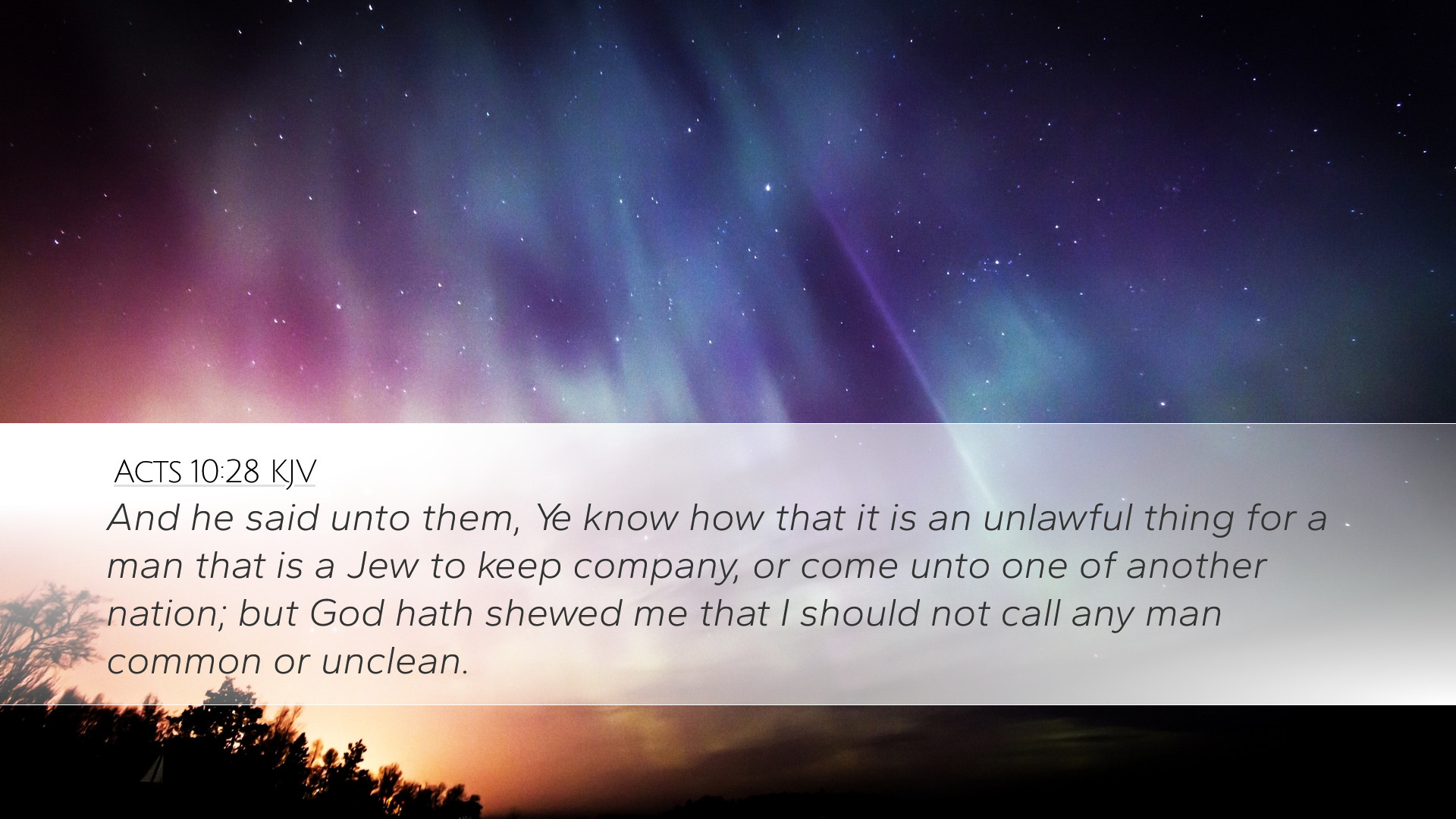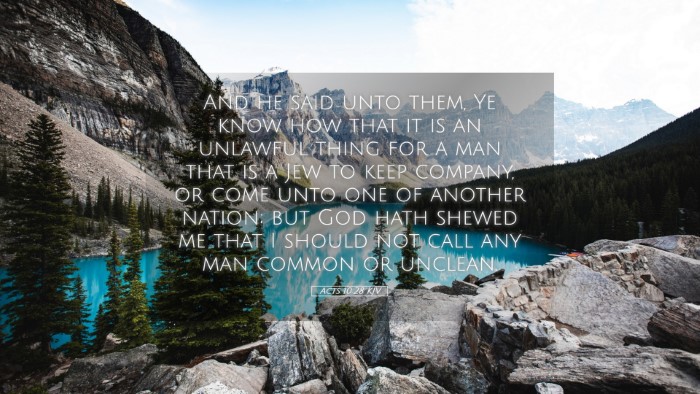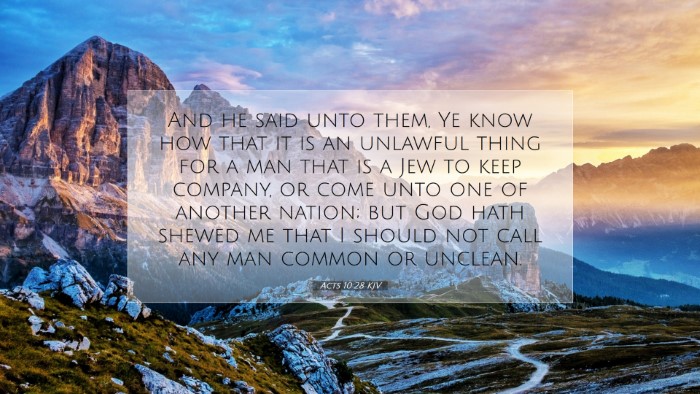Commentary on Acts 10:28
Verse Context: Acts 10:28 states: "And he said to them, 'You yourselves know how unlawful it is for a Jew to associate with or to visit anyone of another nation, but God has shown me that I should not call any person common or unclean.'
Introduction
This passage is pivotal as it marks a significant change in the early Christian church regarding the outreach to Gentiles. With Peter's declaration, we see a bridge being built between Jews and Gentiles, signaling a shift toward the inclusive nature of the Gospel.
Insights from Matthew Henry
Matthew Henry emphasizes the divine revelation that Peter received, which served as a clear indication that God's grace was not limited to the Jewish people alone. His commentary highlights:
- Divine Intervention: Peter's vision, received from God, serves as a primary foundation for understanding God’s broader plan of salvation touching all nations.
- Equality in the Gospel: Henry notes that God has no favorites among nations; this is echoed in Peter’s vision where all creatures are declared clean.
- Overcoming Prejudice: The verse reveals Peter's struggle against ingrained Jewish customs and prejudices that categorized Gentiles as unclean.
- The Call to Justice: Henry articulates that it is not only lawful but also righteous to seek unity among different nations in Christ.
Insights from Albert Barnes
Albert Barnes offers a detailed examination of the implications of Peter’s statement, exploring the theological and practical ramifications for the early church. Key points include:
- The Primacy of Revelation: Barnes highlights that Peter's insight comes from a direct command by God, reinforcing that Christian beliefs should be rooted in divine instruction.
- Transformation of the Law: The observation that the old Jewish laws concerning food and association are being reinterpreted is essential for understanding early Christian doctrine.
- Gentile Inclusion: The cosmic vision signifies God's approval in reaching out to Gentiles, laying the groundwork for missionary efforts throughout the Roman Empire.
- Challenge to Jewish Exclusivity: His commentary reflects on the challenging transformation of the Jewish mindset, warning that neglecting this lesson results in eternal consequences.
Insights from Adam Clarke
Adam Clarke brings a scholarly perspective, providing historical context that underscores the significance of Acts 10:28. His observations include:
- Cultural Context: Clarke examines the cultural ramifications of Peter’s acceptance of Gentiles, particularly in relation to Jewish customs and the Great Commission.
- Historical Precedent: He references the historical aversion of Jews toward Gentiles, illuminating how deeply rooted these cultural sentiments were before the Gospel's outreach.
- Theological Implications: The declaration that no person is unclean opens the door for a universal call to salvation, highlighting God’s grace transcending ethnic boundaries.
- Call for Action: Clarke encourages readers to not only recognize this truth but to actively participate in proclaiming it, thereby embodying the mission of Christ.
Theological Implications
The exploration of Acts 10:28 encourages deeper theological reflection in various areas:
- Doctrine of Inclusion: This passage shapes the understanding of God’s inclusive nature, emphasizing that all are invited into the family of God.
- Missional Theology: The understanding of who is "clean" or "unclean" directly influences the church’s approach to evangelism and outreach in diverse contexts.
- Unity in Diversity: Peter’s awakening to the truth that righteousness is applicable to all nations provides a model for contemporary discussions of race and inclusivity in faith communities.
- Challenge to Modern Believers: Modern Christians are called to reflect on their biases and to understand the universal nature of God’s love.
Conclusion
Acts 10:28 serves as a transformative verse that speaks volumes about the early church's expansion and God's desire for inclusivity. By learning from the insights of esteemed commentators like Henry, Barnes, and Clarke, contemporary readers and scholars can glean both historical and theological richness, challenging believers today to embrace a Gospel that transcends boundaries.
Reflection Questions
- How can the message of inclusion in Acts 10:28 impact our ministry today?
- In what ways do we still hold on to prejudices that Jesus calls us to let go of?
- What practical steps can be taken to foster a spirit of unity among diverse groups in our communities?
- How does this passage inform our understanding of the Great Commission?


